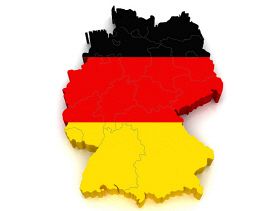 The situation in Germany: The abolition of the quota on 31 March 2015 was celebrated by many traditional German institutes (DBV, LfL Bayern, LLH, MIV, etc.) as a liberation of dairy farmers. In future, they argued, farm managers could now make their own decisions on the development of their farm and would no longer have to regard the expensive quota as a hindrance and straitjacket for the farm.
The situation in Germany: The abolition of the quota on 31 March 2015 was celebrated by many traditional German institutes (DBV, LfL Bayern, LLH, MIV, etc.) as a liberation of dairy farmers. In future, they argued, farm managers could now make their own decisions on the development of their farm and would no longer have to regard the expensive quota as a hindrance and straitjacket for the farm.
Abolition
According to the advocates of the abolition of the quota, over the 31 years the quota had brought the farms nothing but costs, and had never achieved the goal stated at the time of stabilising the milk price. The market, they said, had not been safeguarded against severe fluctuations, and the number of dairy farms had fallen in Germany from 369,000 (1984) to 78,000 (2014) despite the quota (DBV fact check on the end of the quota). Much can be speculated about what would have become of the dairy industry without the quota, because there is no possibility of drawing a comparison.The fact is, though, that the decline in the milk price within one year of at least 10 cents/kg on a production volume of 29 million tons means a loss in added value for the dairy farmers of at least € 2.9 billion.
Negotiations
By 30 April 2015, the dairies had negotiated the new contracts for the white line (milk, yoghurt, and quark) with the retailers. What is totally unusual and new is that nothing has been said or written about the course and outcome of the negotiations. However, the decrease in the milk price in Aldi stores from 59 cents/litre to 55 cents/litre leads one to assume that the dairies had to give way in the negotiations. The current market situation confirms this supposition. Although altogether less milk is being produced than in the same period the previous year, supply exceeds demand. Another most likely reason is that very often the media associated the end of quotas with an end to the costs of the quota. The retailers probably made use of this in their argumentation. There has not been a reduction in milk producers’ costs, as the quota was already paid for.
Cheese
Further falls in milk prices are therefore to be expected in Germany. There is still hope that the dairies will not make concessions in the negotiations on the “yellow range” (cheese products). That is why on Milk Day on 1 June 2015 the BDM used bonfires to draw attention to the situation in the milk market. The aim of these warning fires was to explain the situation in conversations with as many consumers and politicians as possible and to present the instrument for milk market crisis management.
Thanks to Thorsten Sehm, BDM Germany

